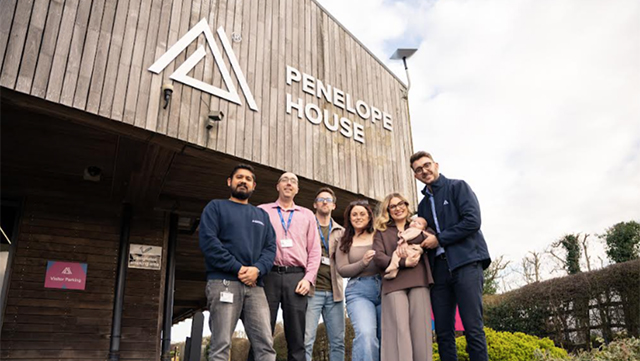Cyprus-registered Aisi Realty Public, whose shares are listed in the Alternative Investment Market of the London Stock Exchange, has, until recently, maintained a fairly low public profile.
But the company became a sharper blip on property sector radar screens with the appointment of two prominent real estate figures whose stature suggests that the company means to be a force to be reckoned with.
In mid-June it was announced that former Sonae Sierra CEO Álvaro Portela is to join Aisi as a non-executive director. His appointment followed soon after that of Harin Thaker, who also was named as a non-executive director after departing, at the end of last year, German finance house pbb Deutsche Pfandbriefbank, where he had been the UK-based head of international real estate.
Corporate transformation
The two appointments are part of a corporate transformation, under the leadership of CEO Lambros Anagnostopoulos, which will also see the company renamed Secure Property Development & Investment.
The two latest appointments “build on a number of successful turnaround initiatives which have been implemented by the new internal management as part of a wider strategy to improve the company’s financial strength and reposition it for future growth,” the firm said.
These changes began with the arrival of Anagnostopoulos and his team last year.
Anagnostopoulos, educated as a naval architect and armed with two MIT masters degrees, one in management, has worked in real estate since moving from Switzerland to Greece to set up listed Lamda Developments. That was at the turn of the millennium in anticipation of Greece joining the euro in 2001 and ahead of the Athens Olympics of 2004. In the ensuing years the company built two of Greece’s largest malls, one in Athens in partnership with Hamburg’s ECE and the other in Thessaloniki, built in partnership with Sonae Sierra, when Anagnostopoulos and Portela worked together of the first time.
Anagnostopoulos left the listed world to establish a private equity venture in 2005 when, as he explains, “the fundamentals in Greece had diminished”. South East Continent Unique Real Estate (SECURE) Management was set up in 2006 to manage property investment and development vehicles working in south-eastern Europe’s property markets, notably Bulgaria, Romania and Serbia. In 2007 that venture spawned a property development fund to work with local developers with “skin in the game” and five ventures were initiated. Anagnostopoulos explains that while the property fund did not thrive, it did not die either and withstood the property bubble because of its conservative strategy.
Aisi is a company of similar vintage and had been operating in Kiev since 2005. Anagnostopoulos had been thinking of it as a possible local development partner in Ukraine. Although that did not happen, last year Aisi’s “substantial cash problems” led its management to Secure, which engineered its recovery.
The fund management model by which Aisi had been run by external managers was ditched and replaced with internal management. The balance sheet was strengthened by means of an $8m convertible loan obtained through Narrowpeak, an affiliate of the Secure Group. Other balance sheet improvements were made, including the negotiation and the settlement of the $17m of liabilities Aisi had at June 2011, resulting in an 82% reduction to around $4.2m at the year end. A $15.5m EBRD loan was refinanced and the company’s cash position improved from $300,000 in 2010 to $800,000 in 2011.
Aisi’s main completed asset was the Brovary logistics park in Kiev. “Brovary was finished and very good quality, but it was almost entirely empty. It was obvious that if we could fully let it, we would create value and it is now close to fully let.”
Aisi also had five land assets, all “decent” and two in very good locations, says Anagnostopoulos.
‘Well-chosen assets’
He says that one advantage of being a small company was that, unlike many bigger, richer firms, Aisi was not compelled to buy assets all over the place with little regard for what it was buying or what was paid. Aisi chose its assets well, he says.
He likes Ukraine too. “South-eastern Europe was the least advanced part of Europe in terms of property,” he points out. It is one of the biggest countries in Europe in terms of population but there are no A+ office buildings in Kiev. It is way behind, it has a big population, low supply and because it is so far behind will have faster growth than elsewhere.”
However, one of the changes Anagnostopoulos has made is to diversify the company’s focus beyond Ukraine to benefit from Secure’s experience in south-east Europe.
This is where Portela’s and Thaker’s expertise will be useful. Portela has worked in markets that have been as poorly supplied with good retail space before and Thaker, who Anagnostopoulos has known for many years, has knowledge of eastern Europe and the financial markets of Europe.
While the company is registered in Nicosia and listed in London, its head office is in Ukraine. Work in Bulgaria, Romania and Serbia will be handled by seconded Secure staff based in those countries so that it can benefit from having people on the ground, which Anagnostopoulos feels is essential. Then, when the portfolio grows in those territories, asset management teams will be established, he says.
“We hope to do deals outside [Ukraine] soon. Most of our time has been spent sanitizing Aisi. Now we are looking forward.”
aisicap.com










